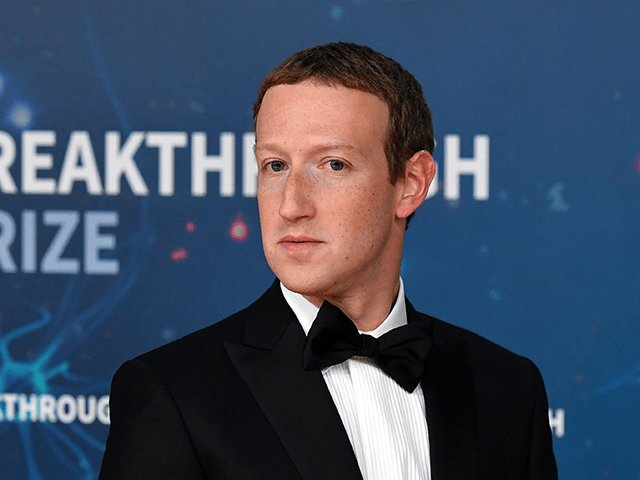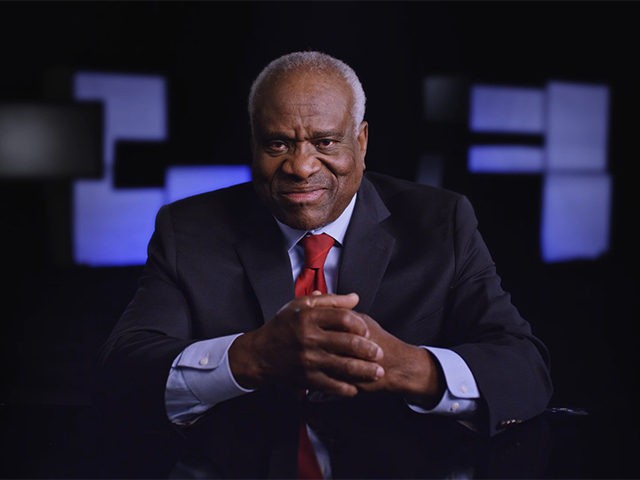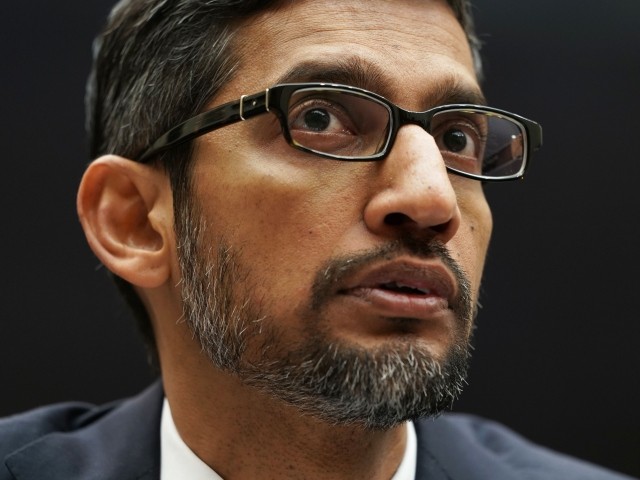Supreme Court Justice Clarence Thomas took another warning shot at Section 230 of the Communications Decency Act (CDA) today, the law that grants Big Tech wide legal immunity to host and censor content at will.
In April last year, Thomas suggested that the Supreme Court, in the absence of action by Congress, might have to narrow the protections of Section 230 in an appropriate case.
He repeated the same argument in blunter terms this week, writing “Assuming Congress does not step in to clarify §230’s scope, we should do so in an appropriate case.”

Facebook CEO Mark Zuckerberg arrives for the 8th annual Breakthrough Prize awards ceremony at NASA Ames Research Center in Mountain View, California on November 3, 2019. (JOSH EDELSON/AFP via Getty Images)
Section 230 of the CDA is integral to the business model of major tech platforms because it ensures they are not held legally liable for the billions of items of user-generated content hosted by them.
It also confers immunity on platforms for removing or moderating content — a less necessary protection, as control over the filtering of content can be headed over to users through block buttons and optional filters without threatening the business models of social media platforms.
Many Republicans have suggested in recent years that Section 230 should be conditioned on platforms remaining politically neutral and open for free expression, to protect the free speech of users.
Thomas gave his opinion in a statement on the Supreme Court’s denial of certiorari in Jane Doe v. Facebook. The case involved a child rapist who used Facebook to lure a 15-year old girl to a meeting, after which he repeatedly raped and beat her before trafficking her for sex.
The case, filed in the state court of Texas, sought to hold Facebook liable for violating Texas’s laws against sex trafficking, as well as a number of common law offenses. The state court allowed the sex trafficking case to proceed, but struck down the common law claims on Section 230 grounds.
In his statement, Thomas said that because the sex trafficking case was not struck down, it was not the right case for the Supreme Court to make a determination on Section 230.
“We should, however, address the proper scope of immunity under §230 in an appropriate case,” concluded Thomas.
Allum Bokhari is the senior technology correspondent at Breitbart News. He is the author of #DELETED: Big Tech’s Battle to Erase the Trump Movement and Steal The Election.


COMMENTS
Please let us know if you're having issues with commenting.